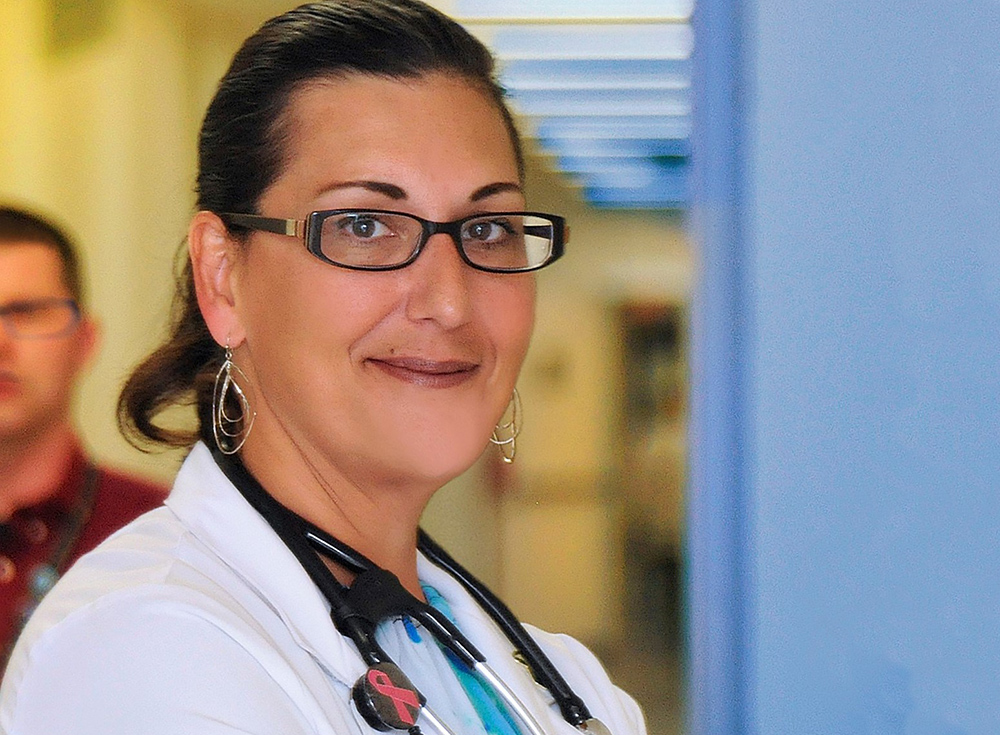Addressing problems before they begin

“Receiving the scholarship helped me change the trajectory of my career,” said Suzana Nikitovic, who just received her Master of Science in Nursing when she returned to Loyola University Chicago after earning a BSN here in 1996.
Prior to returning to Loyola, Nikitovic worked in a transplant center that provided service to people living in under-served communities. She saw, first-hand, the complexities of these individuals’ cases and their complicated lives. A variety of circumstances, including social determinants of health, often force patients to choose between their health or maintaining their jobs or paying rent. Because these patients ex- perienced health care inequality and diminished access to primary care, they developed significant health problems, often leading to a need for a transplant.
“These people were being un- der-served further and at the end of their lives because those very inequalities that contributed to a need for a transplant were often the same ones that eliminated them as a candidate,” said Nikito- vic. “What better way to fix the problem than to work upstream and address end organ failure before it begins,” she said.
Nikitovic applied for and received a scholarship (the first of three) in her second semester, which coincided with her first clinical experience at Hines VA Hospital. After graduation, she intends to work with veterans and pursue a Doctoral degree.
Nikitovic’s Comprehensive Exam (a paper and presentation that reviews an important topic in advanced practice nursing) focused on motivational inter-viewing techniques, which seek to encourage an interviewer to remove all biases, to make the patient the expert about his/her condition and be the driver to help initiate intrinsic motivation to achieve sustainable change.
“Building a rapport, trust, and meeting patients where they are at is really critical to overall care,” said Nikitovic. She recalls a lesson learned about patient-centered care from her work with a medical mission surgeon. “He reminded me that medicine has so many tools and sometimes it’s our own tools – our five senses – that we forget to use,” she said.
Nikitovic’s commitment to caring for each patient as an individual is evident throughout her nursing practice. “Every patient I touch, I treat as if they were family,” she said. “Being a nurse practitioner will allow me to have a greater impact on my patients’ lives. I feel like it’s a privilege to serve others in this capacity, and I end up getting back way more than I give.”
